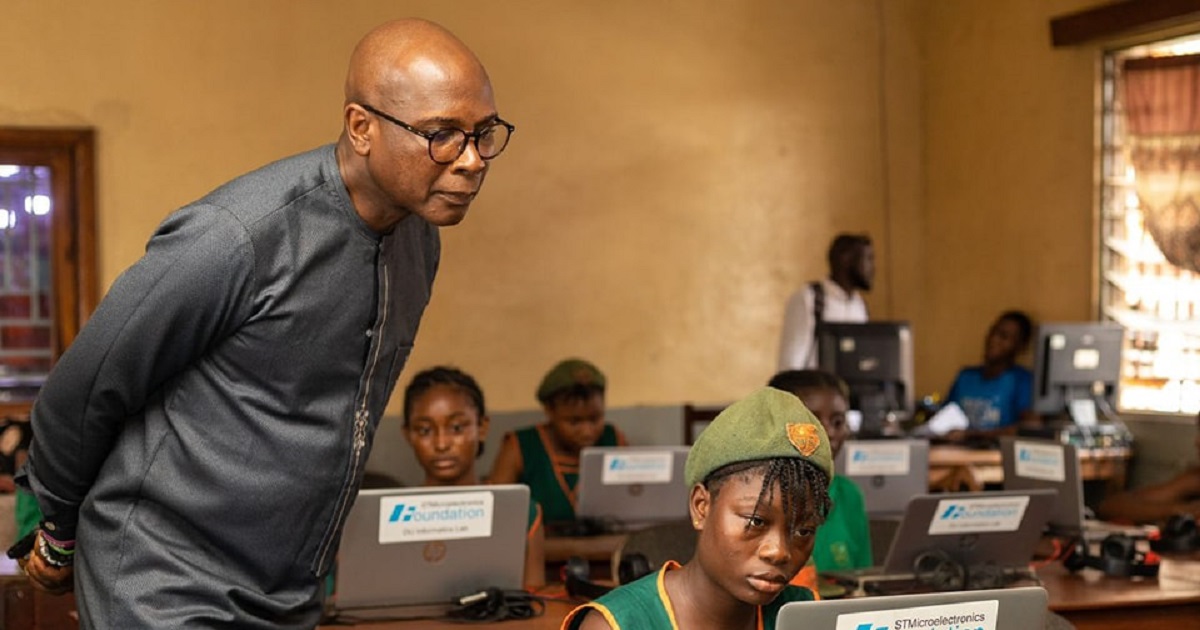Conrad Sackey, Sierra Leone’s Minister of Basic and Senior Secondary Education, has called on African leaders to prioritize investment in the future of the continent’s children.
His appeal came during the 2024 commemoration of the Day of the African Child, emphasizing the need to create a safe and sound community for all.
“We face a stark reality. It is a crucial moment to bring the world’s attention to the urgent and pressing challenges our continent’s children are grappling with,” Sackey stated. “This is not just a call to action but a plea for African governments, NGOs, and global partners to step up their efforts and invest in the future of the African child.”
Highlighting the theme of the African Union’s Year of Education 2024, “Educate and Skill Africa for the Twenty-First Century,” Sackey underscored the critical role of education in shaping Africa’s future. He noted that Sierra Leone has made significant strides in providing free and quality education, driven by a commitment to foundational learning, gender equality, digital skills, climate resilience, and cultural heritage.
Strong Foundational Skills
Sackey stressed the importance of foundational education skills, revealing that 87% of 10-year-olds in sub-Saharan Africa cannot read a simple text. He called for urgent action to reduce this learning poverty to prevent a human capital crisis.
“Education is the backbone of human capital development. Educated youth are pivotal in reducing poverty, driving economic growth, spurring innovation, and fostering social cohesion,” he said. President Julius Maada Bio has committed to halving the learning poverty rate by 2030, with a record 22% of Sierra Leone’s budget allocated to education.
Gender Equality in Education
The Minister highlighted efforts to create a gender-responsive education system. Despite more girls attending school, only 42% complete secondary education. Sierra Leone is actively working to protect girls’ education rights, with initiatives like the Hands Off Our Girls campaign led by First Lady Fatima Bio.
Digital Skills for the Modern Economy
Sackey emphasized the necessity of digital skills, aligning national curriculum and teacher training to bridge the digital divide. Sierra Leone’s partnerships with the Tony Blair Institute, Khan Academy, and Rising Academy Network aim to integrate digital learning into schools, with pilot programs showing promising results.
Climate Change Resilience
Climate change poses a significant threat to education, Sackey warned, recounting the devastating 2017 mudslide in Sierra Leone. He urged African leaders to recognize the impact of climate change on learning and to adapt education systems to mitigate these effects.
Preserving Cultural Heritage
While advocating for modern skills, Sackey also stressed the importance of teaching African history and culture. Sierra Leone’s curriculum includes African history and civic education, celebrating the nation’s diverse heritage.
Conclusion
The Day of the African Child serves as a powerful reminder of the urgent need to address the challenges facing Africa’s children. Sackey’s call for concerted efforts from governments, NGOs, and global partners highlights the pivotal role of education in equipping Africa’s youth for the future. As 2024 marks the African Union’s Year of Education, there is a collective responsibility to ensure every African child has the opportunity to achieve a productive and sustainable livelihood, fostering a brighter future for the continent.











